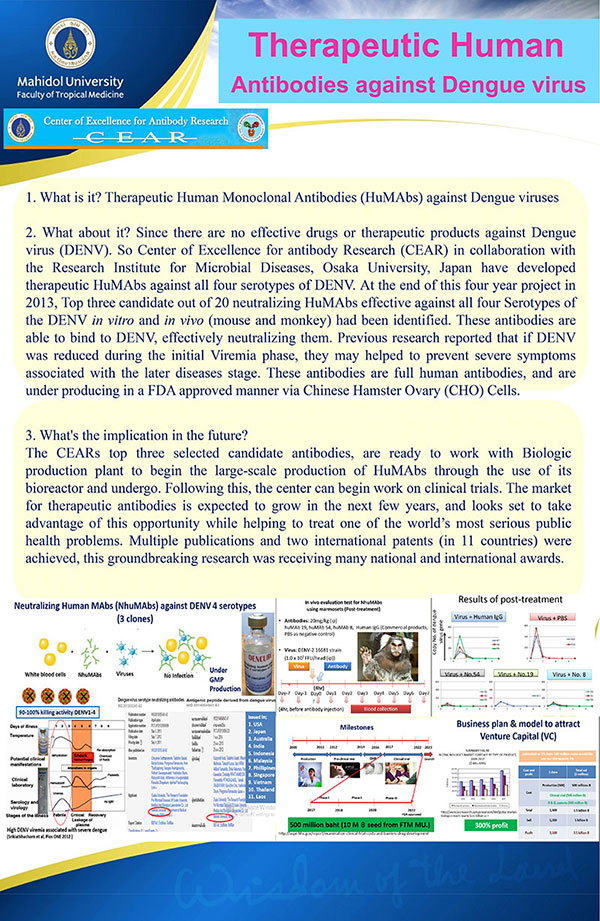Severe dengue infections
Developing effective drug treatments for dengue infection is challenging. Most individuals are generally asymptomatic during the early stages of infection and often by the time symptoms do appear the body’s immune system has already begun clearing the virus from the system. This then presents a very narrow window for which treatment can be of any utility. And fortunately, increasingly accurate diagnosis allows clinicians to identify those patients most at risk for serious disease. Nevertheless, a safe and effective treatment for dengue infection would be a tremendous boon to physicians and patients alike. Researchers with the Department of Social and Environmental Medicine have collaborated with the Center of Excellence for Antibody Research (CEAR) led by Associate Professor Dr. Pongrama Ramasoota. His team is investigating the use of monoclonal antibodies, which in addition to their application to vaccines, can be used through passive immunization to protect against dengue infection or reduce virus levels. CEAR researchers demonstrated that mutations introduced into anti-dengue antibodies could both boost their protective effects and reduce possible harmful effects.
The disease associated with dengue infection continues to be a major threat to human health, both in Thailand and worldwide. While the introduction of the first commercial tetravalent vaccine is a huge milestone, there is still tremendous work to be done. Work carried out by scientists with the Faculty of Tropical Medicine will continue to be necessary before dengue fever is no longer considered a threat.
